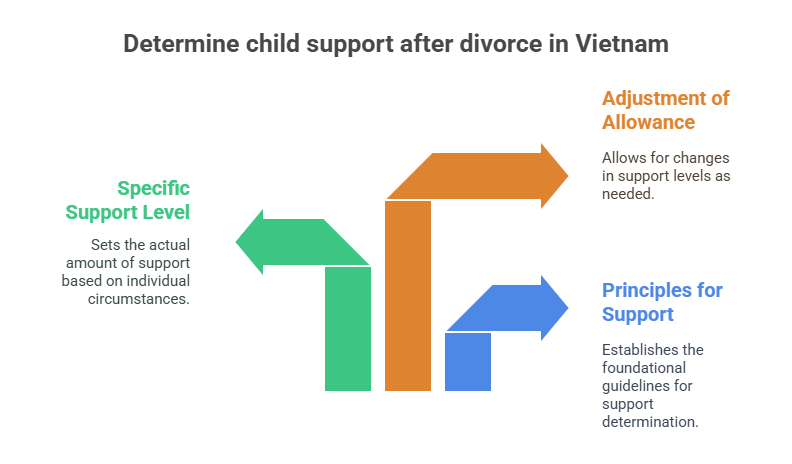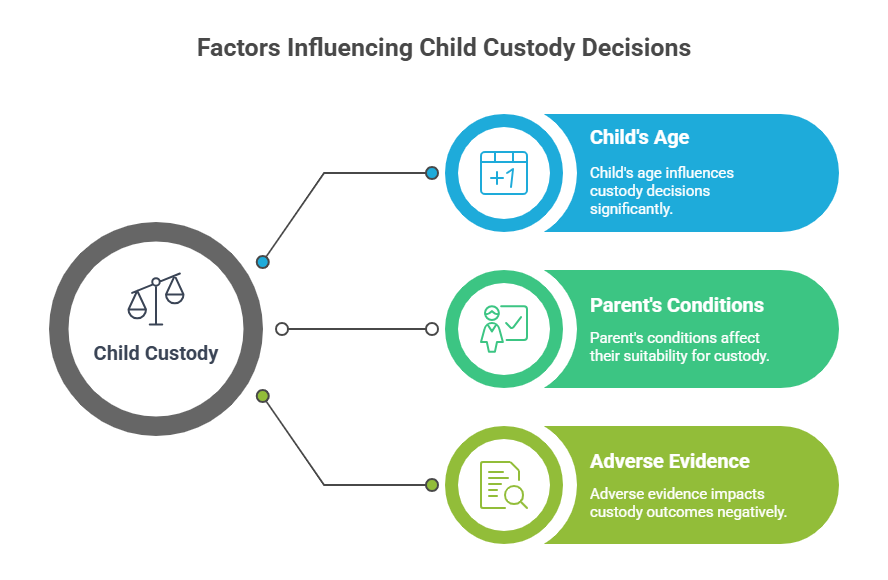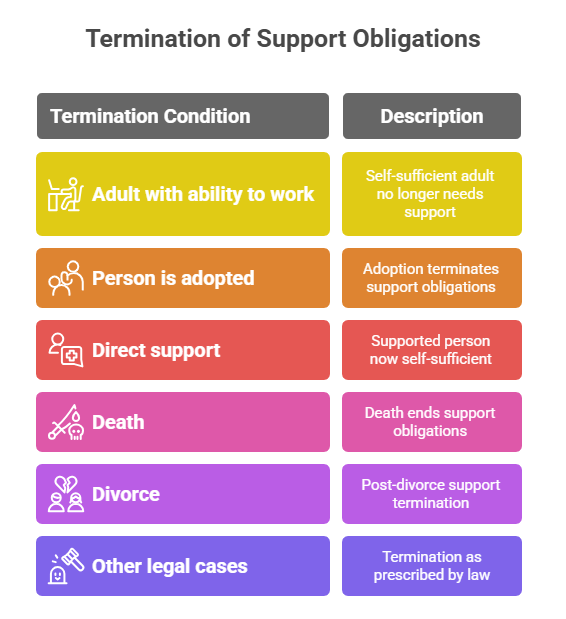
9 Things to Know About Child Support After Divorce
Following a divorce, determining child support is one of the most critical issues that both parents and the court must address. Child support is not only a legal duty but also a moral obligation, ensuring that children have the necessary conditions for their all-round development. However, many individuals are unclear about how child support is calculated—whether the law specifies a fixed amount and if that amount can be adjusted under special circumstances. This article aims to clarify these questions, drawing on the latest legal regulations and practical realities of child support in Vietnam as of 2025.
Table of Contents
Who is responsible for child support after divorce?
According to regulations, the parent who does not directly raise the child after divorce has the obligation to support the child, regardless of whether the parent who directly raises the child has financial capacity or not. Except in cases where the parent who directly raises the child voluntarily does not ask the other parent to support the child, and they have the full capacity and conditions to raise the child.
How much is child support after divorce?
Child support after divorce in Vietnam does not have a fixed amount but is determined based on legal regulations and the specific circumstances of the person who must provide support and the needs of the child. According to the latest regulations from the Law on Marriage and Family 2014, the following principles apply:

Principles for determining the level of support
The level of support is determined based on:
- The child's essential needs: Including the cost of food, education, medical care, and other expenses to ensure the child's comprehensive development.
- The financial capacity of the support person: Consider the income, assets, and actual ability of the person who must perform the support obligation.
Specific level of support
The law does not prescribe a fixed amount (e.g. a percentage of income). Instead, the amount of support will be agreed upon by the court or the parties, as long as it is appropriate to the actual circumstances.
In the absence of an agreement, the court will decide the amount of support based on:
- The monthly income of the person providing support.
- The actual needs of the child (education, living expenses, health care, etc.).
Adjustment of allowance level
The amount of support may be adjusted when the supporter’s circumstances or the child’s needs change. For example:
- The supporter experiences financial hardship or loses his or her job.
- The child’s needs increase due to higher school fees or medical expenses.
Documents to request alimony
If you need to determine or adjust the level of support, you can file a petition with the court with documents such as:
- A copy of the child's birth certificate.
- Proof of income and living expenses.
- Evidence related to the financial capacity of the supporter.
What is the method of child support?
Maintenance can be provided periodically on a monthly, quarterly, semi-annual, annual or one-time basis.
The parties may agree to change the maintenance method or temporarily suspend maintenance in the event that the person with the maintenance obligation falls into economic difficulties and is unable to fulfill the maintenance obligation; if no agreement is reached, the Court shall be requested to resolve the matter.”
In the above proposal, if no agreement is reached, the Court shall decide on the maintenance method appropriate to the needs, interests of the child and the conditions of the person providing maintenance.
How much income is required to have custody of children?
Income is only one part of the overall criteria that the court will consider. There is no specific income level that determines whether or not you will be granted custody of your child. What is important is that you demonstrate that you are able to care for your child and provide for his or her best interests.
Conditions for gaining child custody after divorce
According to the latest regulations in the Law on Marriage and Family 2014, to gain custody of children after divorce, the following factors will be considered by the court to ensure the best interests of the child:

Child’s age
Children under 36 months of age:
- Usually given priority to the mother, unless the mother is unfit (e.g., unable to care for, violent, or uncaring).
Children from 36 months to under 7 years of age:
The court will evaluate the conditions of both parents, not automatically favoring one side.
Children from 7 years of age and older:
The child’s opinion will be heard and considered by the court as an important factor. However, the final decision is still based on the best interests of the child.
Conditions of the parent who wants to gain custody of the child
The court will comprehensively evaluate all aspects to decide who will have direct custody of the child:
- Material conditions:
Income and assets: The ability to provide for the child’s basic needs such as food, education, and health care is an important factor. Parents with a stable income and good financial conditions often have an advantage.
Having a fixed residence, a safe, healthy living environment, and being suitable for raising children, away from negative factors such as violence, drugs, or social evils will be given priority by the court.
- Mental conditions:
Provide love, care and attention to the children regularly.
No acts of domestic violence, violation of child rights, or other violations of the law.
The court will consider the ability of the parent to devote time, affection, and care to the children. The parent who can demonstrate greater attachment and care to the children will have the advantage.
- Ability to care and educate:
The ability to provide a good educational environment, ensuring comprehensive physical, intellectual, spiritual development and adequate medical care for the child is also an important factor that the court will consider.
Support from the paternal and maternal families: Good support from the family, such as grandparents, siblings in caring for the child, is also an important factor.
Evidence adverse to the other party
The person seeking custody can provide evidence that the other parent is ineligible, including:
- The court will consider pre- and post-divorce behavior, such as domestic violence, child neglect, or intentional interference with visitation.
- Moral conduct: The court will consider the parent's moral conduct, including compliance with the law, family conduct, and lifestyle.
- History of violence: If a parent has a history of domestic violence, substance abuse, or dangerous behavior, the likelihood of losing custody is high.
Refer to the article titled “12 Factors to Determine Child Custody in Vietnam” for further information.
Court fees for alimony
Child support is one of the most contested cases in court. This dispute often arises in divorce cases. According to the regulations, the person requesting the Court to resolve the dispute over child support does not have to pay court fees in advance, but the person with the obligation to pay child support must pay court fees.
The person requesting child support (the person directly caring for the child) does not have to pay court fees.
Regarding refusal or evasion of alimony obligations
Not everyone who has a maintenance obligation is willing to fulfill his/her obligation. Therefore, the law also provides for this case. According to the following provisions: In case a person with a maintenance obligation evades his/her obligation, upon request of an individual, agency, organization or the Court, that person is obliged to fulfill the maintenance obligation.
Those who have the right to request the fulfillment of the maintenance obligation include: the person receiving maintenance, the person’s father, mother or guardian, relatives, the state agency for family management, the state agency for children management and the Women’s Union.
In addition, this evader will be subject to the handling of the state agency, the violator will not only be subject to administrative sanctions but may also be prosecuted for criminal liability. The person with a maintenance obligation must strictly fulfill his/her obligation.
Termination of support obligations
The Law also clearly stipulates the cases in which the maintenance obligation is terminated as follows:
The maintenance obligation between parents and children, between siblings, between grandparents and grandchildren, between aunts, uncles, paternal uncles and nieces, between husband and wife ends in the following specific cases:
- The person receiving maintenance is an adult, has the ability to work or has assets to support himself/herself
- The person receiving support is adopted
- The person directly supporting the person receiving support
- The person providing maintenance or the person receiving maintenance dies
- The party receiving support after divorce
- Other cases as prescribed by law




Leave A Comment